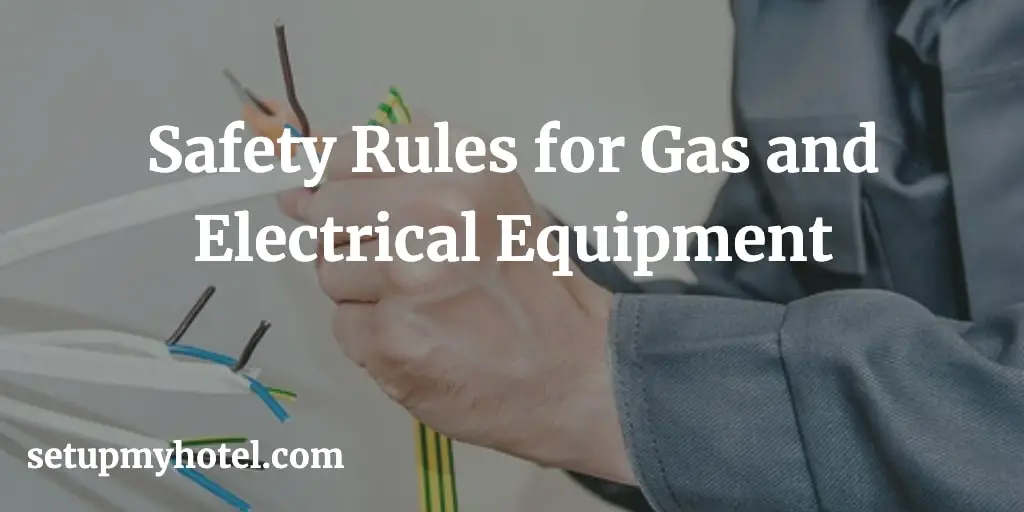Safety Rules for Gas and Electrical Equipment
Ensuring the safety of hotel guests is of utmost importance. As such, it’s crucial to have proper safety rules in place for gas and electrical equipment. These rules should be clearly communicated to all hotel staff and guests to ensure that everyone is aware of the potential risks and how to avoid them.
When it comes to gas equipment, regular inspections and maintenance are essential. All gas appliances should be checked regularly by a qualified technician to ensure that they are in good working condition and that there are no leaks. It’s also important to have proper ventilation in areas where gas appliances are used to avoid the risk of carbon monoxide poisoning.
Electrical equipment should also be regularly inspected and maintained. Any faulty electrical equipment should be immediately repaired or replaced to avoid the risk of electrical shock or fire. Electrical outlets should also be protected with safety covers to prevent accidental contact.
In addition to these safety rules, it’s important to have clear emergency procedures in place in case of gas or electrical emergencies. All hotel staff should be trained on these procedures and guests should be made aware of them upon check-in.
By following these safety rules for gas and electrical equipment, hotels can ensure the safety and well-being of their guests and staff.
What are the safety rules while working with Gas and gas equipment?
- Know the location of the gas shutoff valve on the piece of equipment you’re working on.
- Gas valves can jam easily, so turn it off before starting repairs.
- Always know where the emergency gas shutoff is to the entire kitchen, and how to turn it off and on.
- If you smell gas, turn the equipment off, wait for the gas to dissipate, then look and listen for the site of the leak.
- If you open up a gas line in any way, always check for leaks.
- Use a soap solution to check for leaks, never a flame.
- Fix all gas leaks promptly, however small.
- Always cap unused gas lines. Don’t just turn them off.
- When changing gas controls, always check to make sure the control is for the type of gas that you are using (natural or LP).
- Some controls are interchangeable, but others are specific to one type.
- Light pilots with a tightly rolled piece of paper at least 12 inches long as this gives you some protection if the gas pops.
- If the pilot light blows out, wait four to five minutes for any gas to dissipate before you try to light the pilot again.
What are the safety rules while working with Electricity and Electrical Equipment?
- When you’ve turned off a circuit breaker to work on a piece of equipment, always put a piece of tape across it so someone else doesn’t accidentally turn it on.
- After the circuit breaker is turned off, always test the equipment with a voltmeter to make sure you turned off the correct breaker and there aren’t other circuit breakers that need to be turned off.
- Always check the voltmeter to make sure it works by testing it in a live outlet that you know works.
- When doing a “jump” test: Turn off the power, place the jumpers across the switch to be jumped, turn the power back on to observe the results, turn the power off, and remove the jumper.
- Never leave a switch jumped longer than the few seconds it takes to see the results of the test.
- Never work on electrical equipment if the floor is wet.
- If you must leave a piece of malfunctioning equipment, take precautions to ensure no one else will try to use it.
- Leave a big note taped to the front explaining the situation (e.g., “Out of Order, Will be back with parts this evening”).
- When a piece of equipment is “temporarily” fixed, never let anyone use it until you are certain it is safe.
- Never call a job “done” until you have thoroughly tested it and are 100% sure it is safe and fully operational.
- Always know where you can turn off the power quickly in case of a problem, whether it’s at the plug or circuit breaker.











